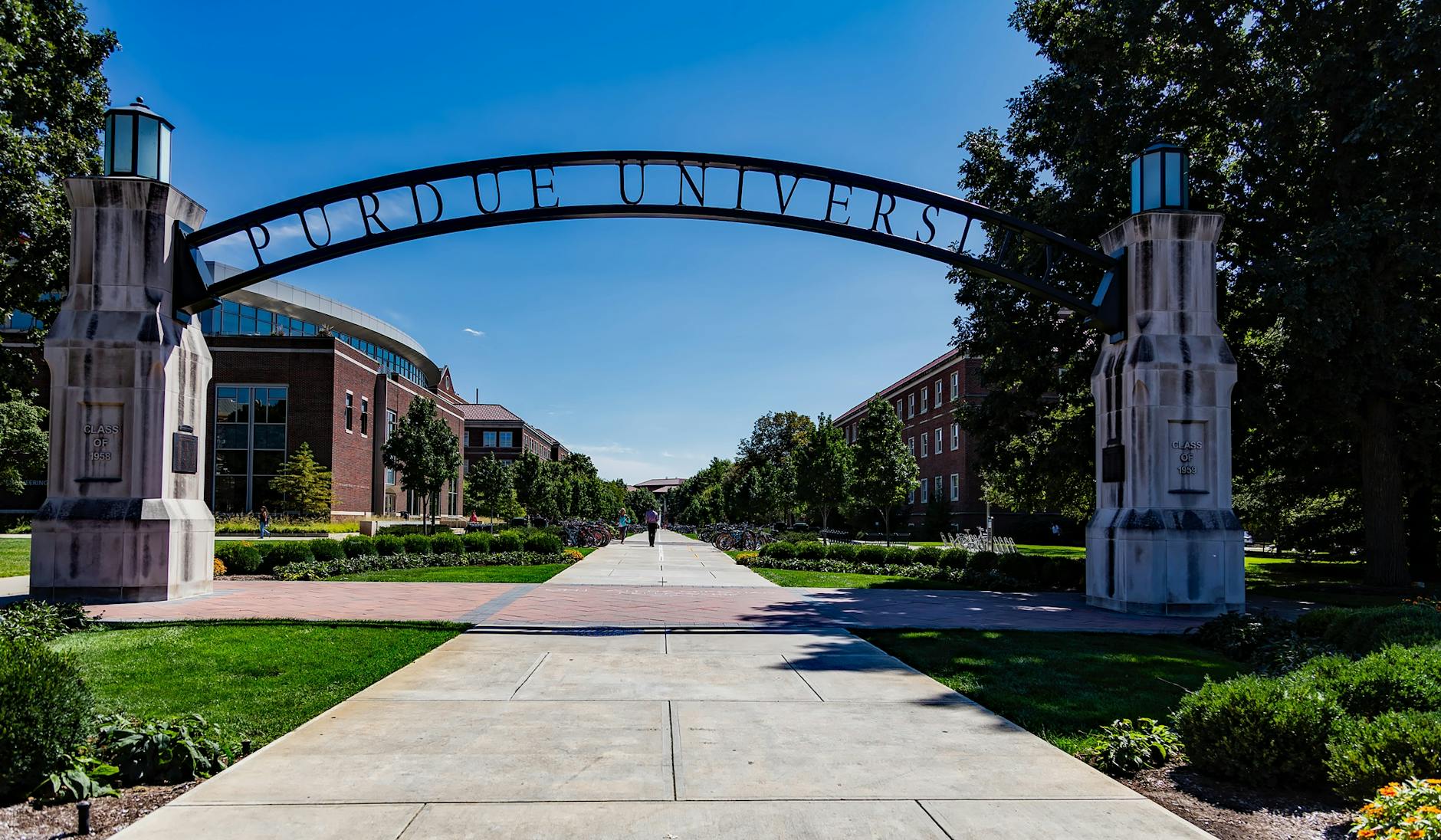Are you feeling overwhelmed by the daunting task of choosing the right university in India? 🎓 With thousands of institutions to choose from, each promising a bright future, it’s no wonder many students find themselves lost in a sea of options. The pressure to make the perfect decision can be paralyzing, leaving you worried about potentially derailing your entire career before it even begins.
But fear not! 🌟 Selecting the ideal university doesn’t have to be a nerve-wracking experience. In fact, with the right approach, it can be an exciting journey of self-discovery and future planning. This comprehensive guide will walk you through ten crucial factors to consider, from assessing your academic goals to exploring career services and alumni networks. By the end of this post, you’ll be equipped with the knowledge and confidence to make an informed decision that aligns perfectly with your aspirations and potential.
Let’s dive into the essential steps you need to take to choose the university that will set you on the path to success. Whether you’re dreaming of a prestigious IIT, a renowned private institution or a specialized college that caters to your unique interests, we’ve got you covered. 🚀

Assess Your Academic Goals and Interests
Before going through the vast array of university options in India, it’s crucial to take a step back and reflect on your personal academic goals and interests. This self-assessment will serve as the foundation for making an informed decision about your higher education journey.
A. Consider career prospects
When choosing a university, it’s essential to align your education with your future career aspirations. Research the job market trends and growth sectors in India to identify promising career paths. Consider the following factors:
- Industry demand
- Salary potential
- Job satisfaction rates
- Opportunities for advancement
| Career Field | Growth Potential | Average Starting Salary (INR) |
|---|---|---|
| IT/Software | High | 4-6 lakhs per annum |
| Engineering | Moderate | 3-5 lakhs per annum |
| Finance | High | 5-7 lakhs per annum |
| Healthcare | High | 3-5 lakhs per annum |
B. Evaluate your academic strengths
Assess your academic performance and identify subjects where you excel. This will help you choose a program that aligns with your strengths and increases your chances of success. You may consider:
- Your favorite subjects in school
- Areas where you consistently perform well
- Subjects that challenge and excite you
C. Determine your long-term objectives
Think beyond just getting a degree. Consider your long-term goals and how your university education can help you achieve them. Ask yourself:
- Where do you see yourself in 5-10 years?
- Do you want to pursue higher studies after your bachelor’s degree?
- Are you interested in research or academia?
- Do you plan to start your own business?
D. Identify your preferred field of study
Based on your career prospects, academic strengths and long-term objectives, narrow down your preferred field of study. Some popular options in India include:
- Engineering and Technology
- Management and Business Administration
- Medicine and Healthcare
- Law
- Arts and Humanities
- Sciences
By thoroughly assessing your academic goals and interests, you’ll be better equipped to make an informed decision about which university in India aligns best with your aspirations. This self-reflection will serve as a compass, guiding you through the subsequent steps of the university selection process.

Research University Rankings and Accreditations
When choosing the right university in India, understanding rankings and accreditations is crucial. Let’s explore the key aspects to consider:
A. Understand different ranking systems
Several ranking systems evaluate Indian universities:
- National Institutional Ranking Framework (NIRF) – May read https://gyanpulse360.com/exploring-indias-top-universities-insights-from-the-nirf-rankings/ and https://www.nirfindia.org/
- QS World University Rankings – May read https://www.qs.com/
- Times Higher Education (THE) World University Rankings – May read https://www.timeshighereducation.com/
Each system uses different criteria, so it’s essential to compare multiple rankings for a comprehensive view.
B. Check for NAAC accreditation
The National Assessment and Accreditation Council (NAAC) is a key accreditation body in India. NAAC grades institutions on a scale from A++ to C, considering factors such as:
- Curricular aspects
- Teaching-learning process
- Research and innovation
- Infrastructure and learning resources
| NAAC Grade | Score Range | Quality Level |
|---|---|---|
| A++ | 3.51-4.00 | Excellent |
| A+ | 3.26-3.50 | Very Good |
| A | 3.01-3.25 | Good |
| B++ | 2.76-3.00 | Above Average |
| B+ | 2.51-2.75 | Average |
To know more about NAAC – May read http://naac.gov.in/index.php/en/
C. Look for specialized program rankings
Some organizations provide rankings for specific programs or fields of study. These can be particularly helpful if you have a clear career path in mind. Examples include:
- NIRF’s discipline-specific rankings at https://www.nirfindia.org/
- Outlook-ICARE India University Rankings at https://www.outlookindia.com/topic/outlook-ranks
- India Today’s Best Colleges rankings at https://bestcolleges.indiatoday.in/full-rankings
D. Consider international recognition
For students considering global opportunities, international recognition is vital. Look for:
- Universities with international collaborations
- Institutions recognized by foreign accreditation bodies
- Rankings in global university lists
Remember, while rankings and accreditations are important, they shouldn’t be the sole factor in your decision. Consider them alongside other aspects like curriculum, faculty expertise and campus culture to make an informed choice.

Evaluate Academic Programs and Curriculum
Now that you’ve researched university rankings and accreditations, it’s time to dive deeper into the academic programs and curriculum offered by your shortlisted institutions. This step is crucial in ensuring that your chosen university aligns with your career goals and academic interests.
A. Look for industry-relevant programs
When evaluating academic programs, prioritize those that are in high demand and aligned with current industry trends. Here’s a comparison of some popular programs and their industry relevance:
| Program | Industry Relevance | Future Prospects |
|---|---|---|
| Data Science | High | AI, Machine Learning, Big Data |
| Renewable Energy | Growing | Sustainability, Clean Tech |
| Digital Marketing | High | E-commerce, Social Media |
| Biotechnology | Expanding | Healthcare, Pharmaceuticals |
B. Examine course structures
Carefully review the curriculum of each program you’re interested in. Look for:
- Up-to-date course content
- Flexibility in choosing electives
- Practical components like labs or projects
- Opportunities for interdisciplinary learning
C. Check for internship and placement opportunities
Hands-on experience is invaluable for your future career. Investigate:
- Mandatory internship programs
- Industry partnerships for placements
- On-campus recruitment drives
- Success rates of previous batches in securing jobs
D. Assess faculty qualifications and expertise
The quality of education largely depends on the faculty. Consider:
- Academic qualifications of professors
- Industry experience of teaching staff
- Faculty-to-student ratio
- Opportunities for mentorship
E. Consider research opportunities
For those interested in academia or innovation, research exposure is crucial. Look for:
- Ongoing research projects
- Collaborations with international universities
- Availability of research grants
- Publication records of faculty and students
By thoroughly evaluating these aspects of academic programs and curriculum, you’ll be better equipped to choose a university that not only meets your academic needs but also prepares you for a successful career in your chosen field. Next, we’ll explore the importance of location and campus life in your university selection process.

Consider Location and Campus Life
When choosing the right university in India, it’s crucial to consider the location and campus life. These factors can significantly impact your overall college experience and personal growth.
A. Evaluate city vs. rural settings
The choice between urban and rural campuses can greatly influence your university experience:
| Setting | Advantages | Disadvantages |
|---|---|---|
| City | – More job opportunities – Better infrastructure – Diverse cultural experiences | – Higher living costs – More distractions – Potentially crowded |
| Rural | – Peaceful environment – Lower living costs – Closer-knit community | – Limited job opportunities – Fewer amenities – Potential isolation |
B. Assess climate and cultural factors
India’s diverse climate and cultural landscape offer unique experiences:
- Consider the regional climate and how it may affect your daily life and studies
- Research local festivals, traditions and customs to ensure cultural compatibility
- Evaluate language barriers and opportunities for cultural immersion
C. Look into campus facilities and amenities
A well-equipped campus can enhance your learning experience:
- Modern classrooms and laboratories
- Well-stocked libraries and study areas
- Sports facilities and fitness centers
- On-campus accommodation options
- Wi-Fi connectivity and tech infrastructure
D. Research extracurricular activities and clubs
Engaging in extracurricular activities can boost your personal and professional development:
- Investigate the range of student clubs and organizations available
- Look for opportunities in sports, art, and cultural activities
- Consider leadership and volunteer programs that align with your interests
By thoroughly evaluating these aspects of location and campus life, you’ll be better equipped to choose a university that not only meets your academic needs but also provides a fulfilling and enriching college experience. Next, we’ll explore the importance of understanding admission requirements and procedures to ensure you’re well-prepared for the application process.

Analyze Admission Requirements and Procedures
Now that you’ve evaluated academic programs and considered location, it’s time to delve into the admission requirements and procedures of your chosen universities. This step is crucial in ensuring you’re well-prepared for the application process.
Review application deadlines
One of the most critical aspects of the admission process is meeting deadlines. Indian universities typically have strict application timelines, which vary depending on the institution and program. To help you stay organized, consider creating a timeline like this:
| University | Program | Application Opens | Application Deadline |
|---|---|---|---|
| University A | Engineering | September 1, 2023 | December 15, 2023 |
| University B | Business | October 1, 2023 | January 31, 2024 |
| University C | Arts | August 15, 2023 | November 30, 2023 |
Prepare necessary documents
Most Indian universities require a standard set of documents for admission. These typically include:
- 10th and 12th standard mark sheets
- School leaving certificate
- Character certificate
- Migration certificate (if changing boards)
- Passport-sized photographs
Check for specific subject prerequisites
Different programs may have specific subject requirements. For instance:
- Engineering programs often require Physics, Chemistry and Mathematics in 12th standard
- Medical programs typically need Biology, Physics and Chemistry
- Some humanities programs might require a specific language course
Understand entrance exam requirements
Many top universities in India conduct their own entrance exams or accept scores from national-level tests. Common exams include:
- JEE (Joint Entrance Examination) for engineering
- NEET (National Eligibility cum Entrance Test) for medical courses
- CLAT (Common Law Admission Test) for law programs
- CAT (Common Admission Test) for management studies
Make sure to register for the relevant exams well in advance and prepare thoroughly.
With a clear understanding of admission requirements and procedures, you’re now ready to explore the financial aspects of your university choices.

Examine Financial Aspects
When choosing the right university in India, it’s crucial to thoroughly examine the financial aspects of your education. This step will help you make an informed decision and ensure that your chosen institution aligns with your budget and financial goals.
A. Compare tuition fees
Tuition fees can vary significantly between universities in India. Here’s a comparison of average annual tuition fees for different types of institutions:
| Institution Type | Average Annual Tuition Fee (INR) |
|---|---|
| Public Universities | 10,000 – 50,000 |
| Private Universities | 50,000 – 5,00,000 |
| IITs and NITs | 2,00,000 – 3,00,000 |
| Medical Colleges | 5,00,000 – 25,00,000 |
B. Research scholarship opportunities
Many universities offer scholarships to deserving students. Look for:
- Merit-based scholarships
- Need-based financial aid
- Sports scholarships
- Scholarships for women in STEM
- Minority scholarships
C. Consider living expenses
Living expenses can significantly impact your overall college costs. Factors to consider include:
- Accommodation (on-campus vs. off-campus)
- Food and groceries
- Transportation
- Books and study materials
- Personal expenses
D. Evaluate part-time job prospects
Part-time jobs can help offset your expenses. Research:
- On-campus job opportunities
- Internship programs
- Work-study options
- Local part-time job market
By carefully examining these financial aspects, you’ll be better equipped to choose a university that not only meets your academic needs but also aligns with your financial situation. Next, we’ll explore the importance of career services and alumni networks in your university selection process.

Explore Career Services and Alumni Network
Now that you’ve considered the financial aspects of your university choice, it’s crucial to look at how the institution can support your future career. Let’s explore the career services and alumni network of potential universities.
Look into career counseling services
Career counseling services play a vital role in guiding students towards successful career paths. When evaluating universities, consider the following:
- Availability of one-on-one career counseling sessions
- Career workshops and seminars offered
- Resume and interview preparation assistance
- Internship placement support
Assess placement records
A university’s placement record can provide valuable insights into your potential career prospects. Consider the following factors:
| Factor | What to Look For |
|---|---|
| Placement Rate | Percentage of students placed within 6 months of graduation |
| Average Salary | Starting salaries of recent graduates |
| Top Recruiters | Companies that regularly hire from the university |
| Sector Diversity | Variety of industries represented in placements |
Research industry partnerships
Strong industry partnerships can lead to better internship and job opportunities. Look for:
- Collaborative research projects with companies
- Industry-sponsored events and hackathons
- Guest lectures by industry professionals
- Internship programs with partner companies
Evaluate alumni success stories
A university’s alumni network can be a powerful resource for your future career. Consider:
- Notable alumni in your field of interest
- Alumni mentorship programs
- Alumni-led workshops and networking events
- Success stories of recent graduates
By thoroughly exploring these aspects, you’ll gain a clearer picture of how each university can support your career goals. Next, we’ll examine the importance of infrastructure and resources in your university selection process.

Consider Infrastructure and Resources
When choosing the right university in India, it’s crucial to evaluate the infrastructure and resources available to students. These facilities can significantly impact your learning experience and overall academic journey.
A. Evaluate library facilities
A well-equipped library is the heart of any academic institution. Consider the following aspects:
- Collection size and diversity
- Access to digital resources and online databases
- Study spaces and reading areas
- Operating hours and borrowing policies
B. Check for advanced laboratories and equipment
For students in STEM fields, state-of-the-art laboratories are essential. Look for:
- Up-to-date equipment and instruments
- Industry-standard software and tools
- Safety measures and protocols
- Availability of research opportunities
C. Assess technology integration in learning
In today’s digital age, technology plays a vital role in education. Evaluate:
- Campus-wide Wi-Fi coverage
- Smart classrooms and lecture halls
- Learning management systems
- Access to computer labs and software licenses
D. Look into sports facilities
A balanced university experience includes physical activities. Consider:
- Indoor and outdoor sports facilities
- Fitness centers and gymnasiums
- Sports teams and intramural programs
- Coaching and training resources
To help you compare universities based on their infrastructure and resources, use the following table:
| Aspect | University A | University B | University C |
|---|---|---|---|
| Library | ⭐⭐⭐⭐⭐ | ⭐⭐⭐⭐ | ⭐⭐⭐ |
| Laboratories | ⭐⭐⭐⭐ | ⭐⭐⭐⭐⭐ | ⭐⭐⭐ |
| Technology | ⭐⭐⭐⭐⭐ | ⭐⭐⭐ | ⭐⭐⭐⭐ |
| Sports | ⭐⭐⭐ | ⭐⭐⭐⭐⭐ | ⭐⭐⭐⭐ |
Remember, while infrastructure and resources are important, they should be considered alongside other factors like academic programs and faculty quality. Next, we’ll explore the value of gathering insights from current students and alumni to get a more comprehensive understanding of university life.

Gather Insights from Current Students and Alumni
Now that you’ve evaluated various aspects of potential universities, it’s time to gain valuable perspectives from those who have firsthand experience. Gathering insights from current students and alumni can provide a realistic view of campus life, academic rigor and career prospects.
A. Attend university fairs and open days
University fairs and open days offer excellent opportunities to interact directly with current students and faculty members. These events allow you to:
- Ask specific questions about campus life
- Get a feel for the university atmosphere
- Learn about unique programs and facilities
B. Connect with alumni on professional networks
Leveraging professional networks like LinkedIn can help you connect with alumni from your prospective universities. This approach offers several benefits:
| Benefits of Alumni Connections | Examples |
|---|---|
| Career insights | Learn about job prospects in your field |
| Networking opportunities | Build relationships for future internships |
| Honest feedback | Get unfiltered opinions about the university |
C. Read student reviews and testimonials
Online platforms often feature reviews and testimonials from current and former students. These can provide valuable insights into:
- Academic quality
- Campus culture
- Student support services
- Extracurricular activities
D. Participate in online forums and discussions
Engaging in online forums and discussions can offer a wealth of information:
- Join university-specific groups on social media platforms
- Participate in education-focused forums
- Ask questions and seek advice from current students
- Share your concerns and get personalized responses
By gathering insights from these various sources, you’ll gain a well-rounded understanding of each university’s strengths and potential drawbacks. This information will be crucial in making an informed decision about your higher education journey in India.
Disclaimer
While this guide provides comprehensive information on choosing the right university in India, it’s important to note that:
- The decision-making process is highly personal and can vary based on individual circumstances and preferences.
- University rankings and accreditations may change over time.
- Academic programs and curricula are subject to updates and modifications.
- Admission requirements and procedures may be revised by institutions.
- Financial aspects, including fees and scholarships can fluctuate.
Key Considerations
| Factor | Variability |
|---|---|
| Rankings | Annual changes |
| Programs | Regular updates |
| Admissions | Periodic revisions |
| Finances | Subject to fluctuation |
Action Steps
To ensure you have the most accurate and up-to-date information:
- Visit official university websites regularly
- Attend education fairs and university open days
- Consult with current students and recent alumni
- Seek guidance from educational counselors
- Stay informed about changes in the higher education landscape
Summary
Remember, while this guide serves as a valuable resource, it’s crucial to conduct your own research and due diligence when making such an important decision about your educational future in India.
Choosing the right university in India is a crucial decision that requires careful consideration of multiple factors. By assessing your academic goals, researching rankings, evaluating programs and considering aspects like location, campus life and financial implications, you can make an informed choice that aligns with your aspirations. Don’t forget to explore career services, infrastructure and gather insights from current students and alumni to get a well-rounded perspective.
Remember, there’s no one-size-fits-all approach to selecting a university. Take the time to reflect on your personal priorities and weigh each factor accordingly. By following this comprehensive guide, you’ll be better equipped to navigate the complex landscape of higher education in India and find the institution that best suits your needs and ambitions. Your college experience is a significant stepping stone towards your future, so choose wisely and embrace the exciting journey ahead.
One important point which shall be covered in the upcoming article that a student should also check i.e. the necessary approvals by the government and regulatory bodies in India which requires a student to earn valid Degree. Stay tuned for more information on this part however you may read following articles and websites meanwhile:
Explore University System in India at a Glance – https://gyanpulse360.com/explore-university-system-in-india-at-a-glance/
University Grants Commission (UGC) – https://www.ugc.gov.in/Home
Why to choose studying in India? https://gyanpulse360.com/why-to-choose-studying-in-india/
Best Private Universities in Delhi-NCR – https://gyanpulse360.com/best-private-universities-in-delhi-ncr/

